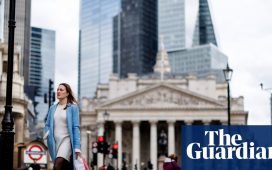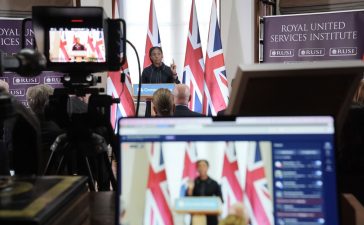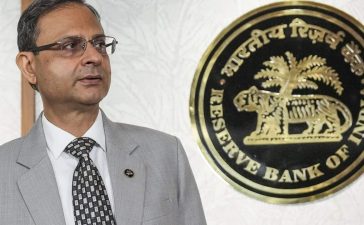BT Tower to become hotel

Just in: BT is selling its telecommunications Tower in the centre of London to MCR Hotels, for £275m.
MCR Hotels plan to turn BT Tower into a hotel, which means it will remain as a London landmark for the future, the telecoms group says.
Brent Mathews, property director at BT Group says:
âThe BT Tower sits at the heart of London and weâve been immensely proud to be the owners of this important landmark since 1984. Itâs played a vital role in carrying the nationâs calls, messages and TV signals, but increasingly weâre delivering content and communication via other means.
This deal with MCR will enable BT Tower to take on a new purpose, preserving this iconic building for decades to come.â
The Tower, located in Fitzrovia, was built in 1964 by the General Post Office (GPO), and used to spread telecommunications traffic from London to the rest of the country.
But its role in communications has diminished as fixed and mobile technology changes, and its microwave aerials were removed more than a decade ago as they were no longer needed to connect London to the rest of the country.
As well as containing communications equipment and office space, it also contains a viewing galleries and a rotating restaurant on the 34th floor.
The restaurant has gone, but that floor does still spin, and gives some brilliant views over central London. Itâs used for hosting corporate and charity events these days (public access ended in 1971 after a bomb blast).
Key events
MP blasts IMF for avoiding scrutiny of its forecasts
Parliamentâs Treasury Committee have fired a blast at the International Monetary Fund for not attending their session today on economic forecasting.
Chair of the Treasury Committee, Harriett Baldwin, says both the IMF and the OECD were invited to take part, and sheâs âdisappointedâ neither has accepted the invitation.
The committee had hoped that both groups would discuss the assumptions which underpin their forecasts on the UK economy, ahead of next monthâs budget.
Baldwin says it is âincredibleâ that the IMF wonât show up today, despite issuing forecasts about the UK, but reports that the OECD were more forthcoming.
She says:
âIâm disappointed neither has accepted our invitation to come to Westminster ahead of the Spring budget and discuss the assumptions which underpin their forecasts on the UK economy.
âI am heartened, however, by the positive intent and engagement shown by the OECD during our discussions. We will continue to work with them to find a suitable time for a public session when schedules allow, to ensure proper democratic scrutiny of their work can be carried out.
âOn the contrary the IMFâs outright refusal to let us scrutinise their forecasts of the UK economy in public is infuriating. Yet they continue to utter public pronouncements about the UK from their perch in Washington. As the IMF is a public body partly funded by the UK as a shareholder, I find this incredible.â
Last November, the OECD predicted that UK growth would remain âstable but lowâ, with national output rising by 0.5% in 2023 and by 0.7% in 2024.
The IMF has ruffled feathers in Westminster; first it predicted the UK would go into recession last year, then changed its mind last May. Then in January it issued a strong warning to Jeremy Hunt against cutting taxes in the budget.
The session starts at 2.15pm today, with MPs hearing from Professor Sir Charles Bean (a former member of the Monetary Policy Committee and the OBR Budget Responsibility Committee), Dr Jack Meaning, the chief UK economist of Barclays, and Nina Skero, chief executive of the Centre for Economics and Business Research
Heathrow Airport has reported its first annual profit since the Covid-19 pandemic.
Heathrow made an adjusted pre-tax profit of £38m in 2023, up from a loss of £684m in 2022, and the first profit since 2019.
It handled 79.2m passengers last year, making 2023 the third-busiest in Heathrowâs history. It hope to break the record this year, and is aiming to welcome a record 81.4m passengers.
German economy in difficult waters as government slashes forecast
Barely a day goes by, it seems, without downbeat economic news from Germany.
And todayâs is that Berlinâs government has slashed its growth forecast for this year.
The German government expects the economy to grow 0.2% this year, far less than a previously forecast 1.3%, as weak global demand, geopolitical uncertainty and persistently high inflation dent hopes for a swift rebound.
The revised forecast was approved by the cabinet on Wednesday as part of the governmentâs annual economic report, government sources told Reuters.
A draft of the report seen by Reuters says:
âThe German economy continues to find itself in difficult waters at the beginning of the year.â
Germanyâs economy shrank by 0.3% in the final quarter of 2023, and would enter a technical recession if it shrinks in the current quarter too.
Share your memories of the BT Tower
We want to hear peopleâs memories of the BT Tower following the news that it will be converted into a hotel.
Did you visit the restaurant or work there?

Jasper Jolly
Speaking of UK manufacturersâ¦weapons manufacturer BAE Systems has reported record profits last year, thanks to increased military spending prompted by Russiaâs war on Ukraine and the Israel-Gaza conflict.
BAE Systems made underlying profits before interest and tax of £2.7bn on record sales of £25.3bn in 2023.
Charles Woodburn, the BAE chief executive, said the weapons manufacturer was expecting âsustained growth in the coming yearsâ.
He told reporters on Wednesday:
âInstability in Europe, the Middle East and other parts of the world brings into sharp focus the vital role that we play in protecting national security.â
UK factories report highest selling price inflation since July
Just in: Output at UK manufacturers has fallen over the last quarter, while prices are heading upwards.
The CBIâs latest Industrial Trends Survey, just released, shows that a net balance of 19% of firms reported a drop in output in the last quarter â worse than the 10% recorded in the thee months to January.
However, manufacturers expect output to rise marginally in the quarter to May.
The latest CBI Industrial Trends Survey found that manufacturing output volumes fell in the three months to February at a faster pace than in the quarter to January. Output is expected to rise marginally in the three months to May. #ITS pic.twitter.com/3drEd21zAX
— CBI Economics (@CBI_Economics) February 21, 2024
And thereâs worrying news for the Bank of England: Expectations for average selling price inflation accelerated in February.
A balance of 17% of companies are rasing prices this month, up from 9% in January.
Thaâs the highest reading for selling price expectations since July 2023, but still much lower than the multi-decade high of +80% in March 2022.
Expectations for selling price inflation accelerated in February, climbing above their long-run average. Selling price expectations were the strongest since July 2023, but remained well below the multi-decade high seen in 2022. #ITS pic.twitter.com/zq55QWCyxy
— CBI Economics (@CBI_Economics) February 21, 2024
Anna Leach, CBI deputy chief economist, says:
âUK manufacturing conditions remain challenging, with lower output volumes widely reported across the sector this month. But there were also some hopeful signs.
Order books improved – in the case of export orders to above their long-run average – and manufacturers continue to expect output to improve in the months ahead.
FTSE 100 in red
The UK stock market is having a weak morning, with blue-chip shares in the red.
The FTSE 100 index has lost 66 points, or 0.85%, to 7652 points.
HSBC are dragging the index down; its shares have lost 8% this morning, after reporting a fall in profits in the last quarter.
Mining giant Glencore are down 3.2%, after it posted a 75% drop in net income for last year, from $17.3bn to $4.28bn.
Joshua Mahony, chief market analyst at Scope Markets, says:
HSBC represents the biggest drag on the FTSE 100, as shares in this banking giant tumbled in spite of their record full-year profits for 2023. Investors took a dim view of the $3 billion impairment charge associated with the bankâs Chinese investment, dampening sentiment around the Asia-focused bank. With continued concerns around the Chinese real estate sector, and global interest rates expected to fall, investors are taking a somewhat cautious approach after both earnings and revenues fell short of expectations.
Glencore shares have slumped into a two-year low this morning, following on from an earnings report that has seen this mining giant report a collapse in their adjusted core earnings, which halved from $34 billion to $17.1 billion. This served as a stark reminder of the impact felt by falling commodity prices, with continued difficulties in the Chinese economy highlighting ongoing concerns that we may see further struggles this year.
Aldi has announced plans to create 5,500 new roles across the UK this year.
The supermarket will be seeking to recruit for a variety of positions including store assistants, managers and cleaners for new stores opening in 2024. More here.
Full story: BT Tower to become hotel as London landmark sold for £275m
King Charles III banknotes to enter circulation on 5 June
Just in: Banknotes featuring a portrait of King Charles III will be issued from 5 June, the Bank of England has announced.
The portrait of the monarch will appear on existing designs of all four banknotes (£5, £10, £20 and £50), with no other changes to the existing designs.
The new banknotes will only be printed to replace those that are worn, and to meet any overall increase in demand for banknotes, the Bank says.
And thereâs certainly no need to throw existing notes away! Polymer banknotes that feature the portrait of Queen Elizabeth II will remain legal tender, and will co-circulate alongside the King notes.
But businesses that use machines that accept, sort or check banknotes will need to adapt them so they accept these new designs (there are details of what to do here).
The Bank says:
Machines requiring updates include those receiving notes, such as transport ticketing machines, self-service checkouts, gaming machines, vending machines, back-office machines and any other machines that are used to check banknotes are genuine.
Jeremy Hunt wonât be celebrating yet, says Ellie Henderson of Investec, despite the UK racking up a record surplus last month (see opening post).
Henderson says the £16.7bn January surplus is âslightly disappointingâ,
Although the healthy January figure will no doubt be an accolade that the Conservative party will publicly celebrate, in regard to the readthrough to the fiscal headroom available for the upcoming 6 March Budget, todayâs data was slightly disappointing.
The OBR had expected an even larger surplus of £18.2bn at the time of the Autumn Statement, meaning the numbers eat into some of the extra headroom gained in the interim relative to the OBR forecasts, when all else is equal (a rather big caveat!). However, thanks to more favourable numbers in the past, on the financial-year-to-January, borrowing is still tracking lower than the OBR had expected (£96.6bn vs OBRâs £105.8bn).
Henderson also points to rumours that Hunt could make a 1p cut to the basic rate of income tax (which could cost £7.2bn by 2026-27.), adding:
With the Chancellor likely reaching deep into that sofa to find the pennies, a cheaper further 1p cut to employeeâs National Insurance Contributions may be favoured, costing £4.7bn.
MCR Hotels are the third-largest hotel owner-operator in the US,
MCR says it will work with Camden-based Heatherwick Studio to consider how best to turn BT Tower into a hotel.
Tyler Morse, CEO and owner of MCR, says:
âWe are proud to become owners and custodians of the iconic BT Tower.
We will take our time to carefully develop proposals that respect the London landmarkâs rich history and open the building for everyone to enjoy.â
Turning a 177 metre-high tower into a hotel sounds like a big challenge.
But MCR does have experience of such projects; it developed the TWA Hotel at New Yorkâs John F. Kennedy airport, which turned JFKâs original terminal building into a hotel with over 500 rooms.
The sale of the BT Tower to hotel chain MCR comes almost 60 years after it was opened for operations by prime minister Harold Wilson, in 1965.
The Tower was Londonâs tallest building for 16 years, until it was overtaken by the NatWest Tower, which opened in the City of London in 1981.
The BT Tower was open to the public until 1971, when a bomb exploded on the 33rd floor of the Tower. Shortly after the blast the tower and the restaurant were closed to the public.
Looking back at the public financesâ¦new data from HM Revenue and Customs show that tax receipts have jumped by £33.6bn this financial year, to £695.1bn.
That includes a £21.1bn rise in takings from income tax, capital gains tax and national insurance contributions, to £390.9bn.
Nigel Holmes, director for Research and Development at tax services and software provider Ryan, says business tax bills also rose:
âItâs a strong start to the year for HMRC. Januaryâs receipts for business-related taxes totalled £9.3bn, bringing the total from April 2023 â January 2024 to £77.4bn, representing a £8.8bn increase on the same period the year before.
One driver behind the increase in takings will be the Chancellorâs decision to increase Corporation Tax to 25% in April 2023.
âAll eyes will be on the upcoming Spring Statement to see if the Chancellor will announce new changes to help boost British businesses.
Last year, full capital expensing was made permanent, enabling companies to deduct the entire cost of their investments on IT and machinery from their taxable profits in the year of spend. Letâs hope that the needs of UK businesses will be at the front and centre of next monthâs budget too.
BT Tower to become hotel
Just in: BT is selling its telecommunications Tower in the centre of London to MCR Hotels, for £275m.
MCR Hotels plan to turn BT Tower into a hotel, which means it will remain as a London landmark for the future, the telecoms group says.
Brent Mathews, property director at BT Group says:
âThe BT Tower sits at the heart of London and weâve been immensely proud to be the owners of this important landmark since 1984. Itâs played a vital role in carrying the nationâs calls, messages and TV signals, but increasingly weâre delivering content and communication via other means.
This deal with MCR will enable BT Tower to take on a new purpose, preserving this iconic building for decades to come.â
The Tower, located in Fitzrovia, was built in 1964 by the General Post Office (GPO), and used to spread telecommunications traffic from London to the rest of the country.
But its role in communications has diminished as fixed and mobile technology changes, and its microwave aerials were removed more than a decade ago as they were no longer needed to connect London to the rest of the country.
As well as containing communications equipment and office space, it also contains a viewing galleries and a rotating restaurant on the 34th floor.
The restaurant has gone, but that floor does still spin, and gives some brilliant views over central London. Itâs used for hosting corporate and charity events these days (public access ended in 1971 after a bomb blast).








